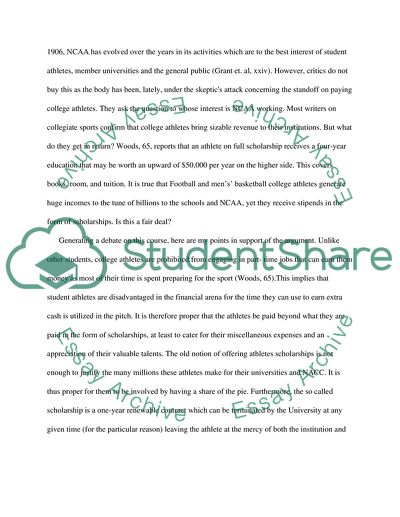Cite this document
(“Why College Athletes Should Be Paid To Play Sports Research Paper”, n.d.)
Why College Athletes Should Be Paid To Play Sports Research Paper. Retrieved from https://studentshare.org/english/1611828-why-college-athletes-should-be-paid-to-play-sports
Why College Athletes Should Be Paid To Play Sports Research Paper. Retrieved from https://studentshare.org/english/1611828-why-college-athletes-should-be-paid-to-play-sports
(Why College Athletes Should Be Paid To Play Sports Research Paper)
Why College Athletes Should Be Paid To Play Sports Research Paper. https://studentshare.org/english/1611828-why-college-athletes-should-be-paid-to-play-sports.
Why College Athletes Should Be Paid To Play Sports Research Paper. https://studentshare.org/english/1611828-why-college-athletes-should-be-paid-to-play-sports.
“Why College Athletes Should Be Paid To Play Sports Research Paper”, n.d. https://studentshare.org/english/1611828-why-college-athletes-should-be-paid-to-play-sports.


